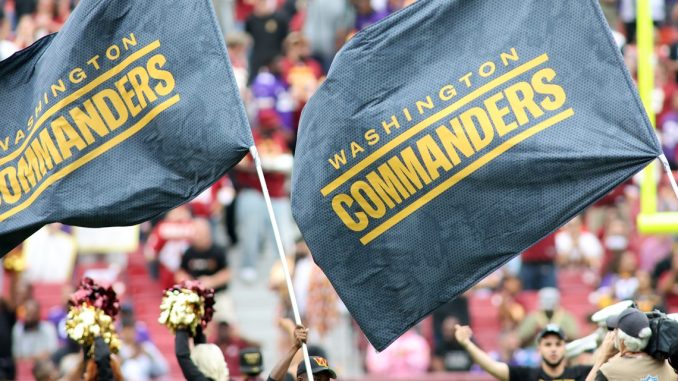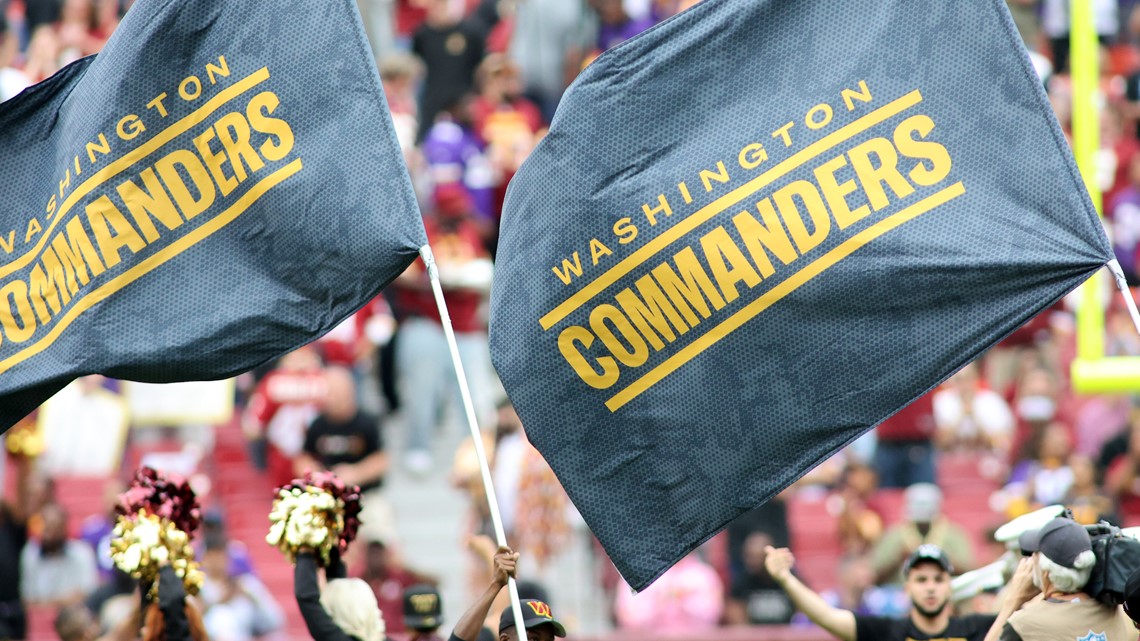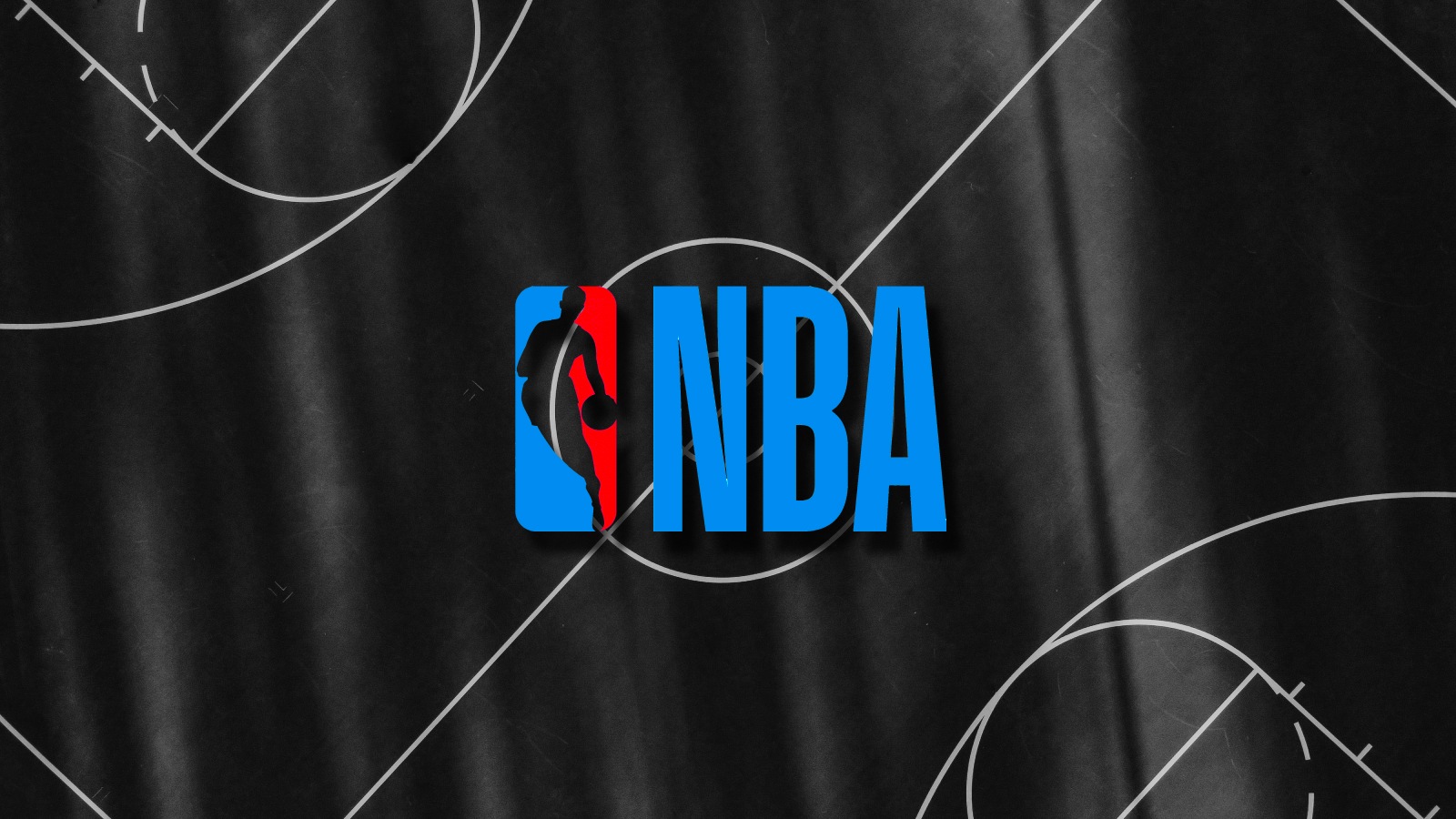
The Harris Group Agrees to Buy the Commanders and Takeaways From the NFL Schedule Release
Nora and Steven recap the Commanders agreement, then discuss the 2023-24 NFL schedule and their favorite and least favorite moments from release
/cdn.vox-cdn.com/uploads/chorus_asset/file/24654571/1252312593.jpg)
Nora Princiotti and Steven Ruiz open by discussing the agreement to sell the Washington Commanders to Harris Group and what this means going forward. They go on to recap the 2023-24 NFL schedule and discuss their favorite and least favorite moments from the schedule release.
Hosts: Nora Princiotti and Steven Ruiz
Associate Producer: Stefan Anderson
Additional Production Supervision: Arjuna Ramgopal and Conor Nevins
Musical Elements: Devon Renaldo
READ MORE:
NFL ownership rules, long a source of pride, may be limiting bidders

While the reasons for the seemingly languid pace of a potential sale aren’t clear, it could suggest the desired price — some believe Snyder is seeking as much as $7 billion — simply isn’t doable for many would-be buyers under the NFL’s rules for team ownership, the most restrictive in sports.
Those rules require the lead investor of an NFL ownership group to have at least a 30 percent equity stake in the purchase (nearly $2 billion if the Commanders sell for $6.5 billion). No ownership group can exceed 25 people, including the lead investor. The group can’t borrow more than $1.1 billion to buy the team. And no private equity firms, public corporations or sovereign wealth funds can own any share.
To date, the NFL hasn’t had trouble finding individual buyers to meet its conditions. Walmart heir Rob Walton, the 12th-wealthiest person in America with an estimated net worth of $60.6 billion, according to Forbes, led the group that submitted the winning bid of $4.65 billion for the Denver Broncos, the most recent NFL team to be sold, last year. Before that, billionaire hedge-fund manager David Tepper, currently worth an estimated $18.5 billion, bought the Carolina Panthers for $2.275 billion in 2018.
Nonetheless, there are multiple reasons the league may consider loosening its ownership requirements sooner rather than later. For starters, the rapid escalation of NFL franchise values limits the pool of potential buyers with sufficient financial wherewithal. Moreover, the NFL’s rules more sharply limit the pool of potential Black bidders, undercutting the league’s stated interest in diversifying its ownership ranks. None of the 32 NFL teams has had a Black owner.
In December, league officials suggested that team owners consider the current ownership policies and whether any changes should be made in the future, according to a person familiar with the situation. That could include allowing private equity firms to buy a limited stake in NFL teams.
“From time to time, the membership will review its ownership structure policies,” NFL spokesman Brian McCarthy said.
In 2000, the NBA loosened its ownership rules to welcome private-equity firms as limited investors, with an eye toward broadening its pool of potential buyers. Major League Baseball did so in 2019; the NHL followed suit in 2021.
With that, a previously untapped source of billions in potential sports investment emerged. Arctos Sports Partners, among the major players in the space, reportedly boasts $3 billion in assets and has ownership stakes in the NBA’s Golden State Warriors and Sacramento Kings, as well as the Boston Red Sox Fenway Sports Group and Los Angeles Dodgers, among other teams.
More recently, the NBA further relaxed its ownership policy to permit sovereign wealth funds, typically based in the oil-rich Middle East, to buy limited shares in teams, setting a 20 percent cap on any single fund or investment firm’s stake in a given team. No more than 30 percent of a single team can be owned by a combined group of funds.

Thus far, NFL owners have steadfastly opposed private equity, generally viewing their restrictive requirements as a badge of prestige rather than a business impediment.
Of the NFL’s 32 owners, 10 are among Forbes 150 richest Americans, each with a net worth of more than $6 billion: Walton (Broncos), Tepper (Panthers), Jerry Jones (Dallas Cowboys), Stan Kroenke (Los Angeles Rams), Stephen Ross (Miami Dolphins), Shahid Khan (Jacksonville Jaguars), Robert Kraft (New England Patriots), Arthur Blank (Atlanta Falcons), Terry Pegula (Buffalo Bills) and Steve Bisciotti (Baltimore Ravens).
But the NFL’s rules are exclusive to the point of being anti-competitive, some contend. Michael McCann, founding director of the University of New Hampshire’s Sports and Entertainment Law Institute, said there is a strong financial incentive in allowing private equity to help fund purchase offers as the NBA has.
“The big advantage for NBA ownership is that, as a whole, it draws in more prospective bidders, which in turn should increase the sales price,” said McCann, who is also Sportico’s senior sports legal reporter. “It’s like selling a house: You want to get more people to bid and have another round of bidders.”
NFL teams are among the most coveted — if not the most coveted — properties in sports, appreciating at a vastly higher rate than the stock market. The Cowboys, Patriots and Rams rank first, second and third, respectively, on the Forbes list of the most valuable sports franchises.
The Commanders, worth an estimated $5.6 billion, are tied for eighth with the NBA’s Golden State Warriors. That reflects a sevenfold increase over the roughly $800 million Snyder paid for the team and its stadium in 1999. And despite poor performance on the field and dwindling attendance at home games (the team ranked last in the NFL during the just completed season), the Commanders’ valuation keeps climbing — appreciating 81 percent over the past five years, by Forbes metrics.
That’s a direct result of the NFL’s business model, in which all 32 teams receive equal shares of the league’s multibillion-dollar national broadcast deals. That income alone can account for roughly 60 percent of a team’s revenue.
The crux of some of the league’s deep-seated resistance, according to several people familiar with the NFL’s behind-the-scenes decision-making, is the prospect of the NFL’s proprietary business information being aired publicly if firms with financial-disclosure requirements owned parts of teams. (To a certain extent, that’s the case with the publicly owned Green Bay Packers, the lone NFL team with shareholders in a throwback to the franchise’s unique history.)
On the other hand, owners want each NFL team that sells to set a record price because their own net worth increases accordingly.
In the case of the Commanders, the team’s storied history as one of just 10 teams to have won three or more Super Bowls adds to its value. The team also boasts a cachet that can’t be quantified, given its unrivaled proximity to political power.
Those are among the reasons McCann believes that a buyer will emerge who can clear the NFL’s high ownership bar. Jeff Bezos, who owns The Washington Post, has expressed interest in the Commanders but did not submit one of the initial bids. Because of Bezos’s vast net worth, NFL requirements would not be an obstacle.
“This is a team that has a legacy to it that should attract a lot of bidders,” McCann said. “It’s a great market with a great fan base. There are other NFL teams in smaller markets, so maybe eventually the league will loosen the rules. My instinct is that [the Commanders] isn’t the sale that’s going to force that change.”
Though Black athletes account for 58 percent of NFL rosters, the league has no Black owners among its 32 teams and just two minority owners: the Jaguars’ Khan, who is Pakistani, and the Bills’ Kim Pegula, who was born in South Korea and co-owns the team with her husband, Terry.
The league and owners approved a resolution last March endorsing diversity in franchise ownership. When Walton’s group announced in June that it had reached an agreement with the Pat Bowlen Trust to buy the Broncos, it also said that it had added a prominent Black business executive — Mellody Hobson, the co-CEO of Ariel Investments — as an investor. In July, the month before the transaction was ratified by the owners, the group added Condoleezza Rice, the former secretary of state. She became the first Black woman to serve in that role when she succeeded Colin Powell in January 2005.
The Fritz Pollard Alliance, the diversity group that works closely with the NFL, said the league and owners must add specifics to their expression of support for minority ownership.
“We recognize how impactful ownership would be in terms of diversity,” said Rod Graves, the group’s executive director. “But if we’re going to get there, then what are our goals? … It’s not enough to say, ‘We’re open to diversity in those areas.’ We need a commitment. And without that commitment, to me, we leave the opportunity for those objectives to be hollow. And I just believe that if the league is truly committed to diversity of ownership, then we need a true plan that outlines the details of how we’re going to get there.”
Commissioner Roger Goodell voiced his wish to diversify the NFL’s ownership ranks during his Super Bowl news conference in 2022, which coincided with the start of the Broncos’ sales process.
“We would love to see a diverse owner of the team, whether that’s a person of color or a female or a Black man. We think that would be a really positive step for us,” Goodell said then. “It’s something we have encouraged. It’s one of the reasons we have reached out to find candidates who can do that. We have no timetable.”
Charles Grantham, director of Seton Hall University’s Center for Sport Management, says change simply won’t happen until and unless the NFL changes its ownership requirements.
“These NFL franchise values have been increasing so much, it has essentially priced minority buyers out of the ballpark,” said Grantham, former executive director of the NBA Players Association, in an interview. “It’s a supply-and-demand business, and so far, the NFL can demand” owners with vast individual wealth.
Entertainment mogul Byron Allen, who is Black, was among the Broncos bidders recruited by Goodell and Kraft. But Allen’s offer and all others were trumped by the record price paid by Walton, whose ownership group included prominent Black co-owners with limited shares in the team, such as Hobson and Rice.
As Goodell noted at the outset of the Broncos auction, individual team owners decide to whom they want to sell. Their fellow owners, in turn, must approve the transaction. In that way, the league operates much like a private, exclusive club with an exorbitant cost of entry, three-fourths majority required for admission and no compulsion to explain why some are denied.
So in Grantham’s view, the owners must reconcile the incompatibility of its two stated positions: insisting it values diversity while insisting that only owners able to put down $2 billion or more can join the club.
“I’m not ready to say these guys did this intentionally,” Grantham said, “but going forward … they’re going to have to change and modify their constitution. Otherwise, at this point, I don’t see a minority owning a football team.”
Leave a Reply